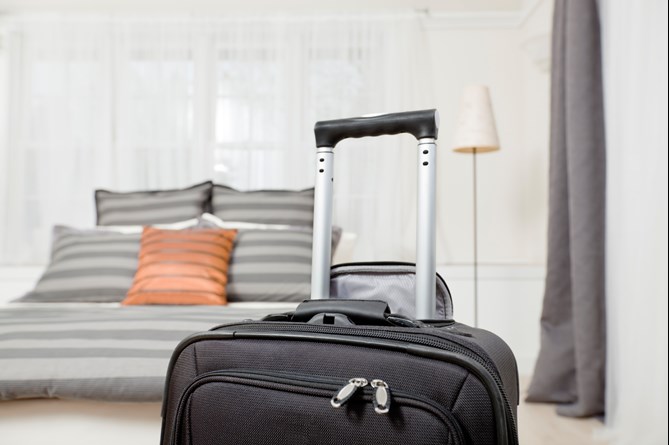Airbnb: Could You Be Breaching Your Lease?
2nd Apr 2019

For many home owners, letting their home can help to pay off mortgages. In fact, thousands are now using the online platform, Airbnb, to rent their home, rooms or apartments. Many properties being advertised are leasehold and owners must be wary of the legal agreements they may be falling foul of. Leaseholders could potentially be breaching their lease and may even be in danger of losing their homes. If you are a leaseholder considering letting your home, there’s a few things you may need to consider…
The Lease
You should ensure the lease does not have any clauses preventing you from letting your property as holiday accommodation. The main clauses you should look out for include:
- Private Residence Only – this restricts use of the property for private use only.
- Nuisance – many leases prohibit use of flats in any way that causes annoyance to other residents. This means you would be responsible for any noisy or unruly guests.
- Change of Use – Some leases prevent you from carrying out business within the property.
It has been queried numerous times as to whether leasehold properties can be used for temporary accommodation. In the case of Nemcova v Fairfield Rents Ltd UKUT 303 (LC), the lease stated that the premises were not to be used for any purpose other than private residence. The lease would not have been breached if the occupier was using it as their private residence, however the duration would also be considered. Due to the leaseholder granting short term lettings (consisting of days or weeks), it was decided that the clause had been breached. In another case, Bermondsey Exchange Freeholders Ltd v Ninos Koumetto, a landlord raised concerns of nuisance and security risks poses by temporary guests. This was because the leaseholder let his flat via Airbnb and other agencies. An injunction was granted at County Court to prevent the flat from being used for such purposes.
Such ruling have huge implications for those renting out their entire properties. As a leaseholder, if you are found to have breached your lease, then the consequences can be rather serious. You could face legal proceedings, be forced to pay legal costs and may even forfeit your lease, resulting in loss of the home altogether. It will not impact those who let room while they also remain living within the property.
Health and Safety
Landlords are obliged to comply with Health and Safety laws. Such laws would also apply to leaseholders letting their property as holiday accommodation. as they would be considered a landlord under the law. Under the Regulatory Reform (Fire Safety) Order 2005, you would also be considered as the person responsible for complying with the law. This is because you are in control of the premises in connection with trade, business or other undertaking. As Airbnb is a holiday let, you would be carrying out business, and would therefore need to comply with the Order. This means you would be required to install at least one smoke alarm on each story of your property where a room is being used as living accommodation. Alongside this, carbon monoxide alarms would need to be installed in any room used as living accommodation that contains a ‘solid fuel’ burning combustion appliance.
Insurance
In apartment blocks, the freeholder will usually responsible for insurance that covers the entire building. A leaseholder, on the other hand, would be responsible for the insurance covering the contents of the flat. Both insurance policies should be inspected to ensure you will not be breaching any insurance terms when letting your home as holiday accommodation. It is important to inform buildings and contents insurers, as guests potentially risk the fabric of the building and everything within it. Failure to do so may cause the insurance covers to be invalidated. In the event of any accidents caused by your guests, insurers may refuse pay-outs for claims. Premiums may also increase or even be refused.
Mortgage Lender
If you have a mortgage in place for your property, you must ensure you have not breached any terms and conditions. Lenders generally do not allow short term lets, meaning letting your property may require consent in writing. You should also be aware that you may end up with a higher rate of interest if you make such a request. Failure to do so may lead the lender to request repayment in full or repossess the property.
Criminal charges
Even without issues from the freeholder, mortgage lender, insurance company or unhappy neighbours, location could also cause another issue. Throughout Greater London, there are laws that provide restriction upon short term letting. If any part of a property is let out on short-term basis for more than 90 days within a 365-day period, you will be considered as breaking the law. This can result in fines of up to £20,000.
Overall, the consequences of breaching your lease agreement or breaking the law will far outweigh the benefits of renting your property out short-term. If in doubt, read your lease agreement, query with your managing agent or seek legal advice.